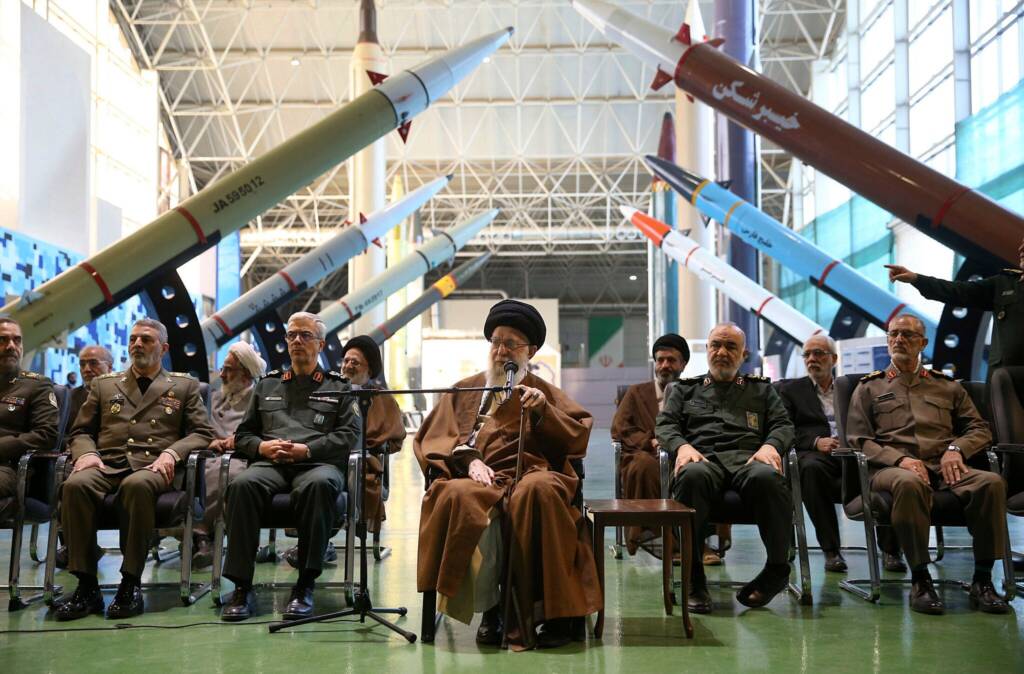The head of the International Atomic Energy Agency (IAEA), Rafael Grossi, has issued a stark warning that Iran retains the ability to resume its nuclear program in a matter of months, despite recent military strikes targeting its key facilities. Grossi’s remarks underscore growing international concern that Iran’s nuclear ambitions may have only been temporarily set back, not permanently dismantled.
IAEA report on Iran
In a report released this week, the IAEA highlighted growing international concerns over Tehran’s nuclear ambitions, particularly in light of recent diplomatic setbacks and a sharp decline in monitoring access for international inspectors.
“Iran has developed significant knowledge and industrial capacity over the years,” said IAEA Director General Rafael Grossi. “If the political decision were made, the country could reestablish key aspects of its nuclear program in a short period of time.”
According to the IAEA chief, Iran maintains a significant industrial capacity. “Iran is a very sophisticated country in terms of nuclear technology, as is obvious. So, you cannot disinvest this. You cannot undo the knowledge that you have or the capacities that you have.”
Grossi went on to say that concerns about Iran’s nuclear program cannot be put to rest through a military solution. “I think this should be the incentive that we all must have to understand that… you are not going to solve this in a definitive way militarily. You are going to have an agreement,” he said, expressing hope that IAEA inspectors would soon have access to the country’s nuclear sites again.
Iran has barred the inspectors from its nuclear facilities, accusing the agency of distorting facts in a recent report, which Tehran claims served as justification for the Israeli and US strikes. Grossi responded by saying: “Really, who can believe that this conflict happened because of a report of the IAEA? And, by the way, what was in that report was not new.”
The comments come after a 12-day conflict between Israel and Iran, during which the US and Israel conducted airstrikes on Iranian nuclear sites.
US President Donald Trump claimed the strikes “completely obliterated” Iran’s nuclear facilities and warned of further attacks if Iran pursues nuclear weapons. Several US media outlets have suggested, however, that the damage to Iran’s nuclear infrastructure was limited.
The statement comes amid heightened tensions in the Middle East and renewed discussions among world powers regarding the future of the 2015 Joint Comprehensive Plan of Action (JCPOA), commonly known as the Iran nuclear deal. The agreement, which once placed strict limits on Iran’s uranium enrichment activities, has effectively unraveled since the United States withdrew in 2018, followed by Iran’s gradual steps away from compliance.
Tehran has denied that it has plans to produce a nuclear weapon and maintains that its nuclear program is for peaceful purposes, stressing that it wants to reserve the right to enrich uranium for civilian use.
Impact on Global Geopolitics
The IAEA’s warning adds urgency to an already tense geopolitical environment. There are several key impacts this development could have:
Israel, Saudi Arabia, and other regional powers may perceive the report as a signal to step up their own defense postures. Israeli officials have already hinted at potential unilateral action should Iran come close to weaponization.
The revelation may also complicate ongoing diplomatic efforts to revive or renegotiate the JCPOA. It could also deepen mistrust between Iran and Western powers, making any return to the negotiating table more difficult.
Iran’s potential resurgence in nuclear capabilities may encourage other regional actors to reconsider their own nuclear options, potentially weakening the global non-proliferation regime and increasing the risk of a regional arms race.
With Iran being a significant oil producer, any escalation or threat of military conflict could disrupt oil supplies and add volatility to global energy markets—especially amid ongoing instability in other parts of the world.
The agency’s report could also lead to renewed calls for stronger enforcement mechanisms under the United Nations framework, including possible sanctions or Security Council action.
Also read: Did Trump Trigger the End of Nuclear Transparency in Iran?
Experts warn that while Iran may not be actively pursuing a nuclear weapon, its ability to “break out” and produce one has significantly shortened. The report urges renewed diplomatic engagement to prevent further escalation.
As international pressure mounts, the IAEA continues to call for full cooperation from Iran, while Iran is keeping its cards close to it. How Tehran will use its nuclear card will define the geopolitics in the region for the coming years.
